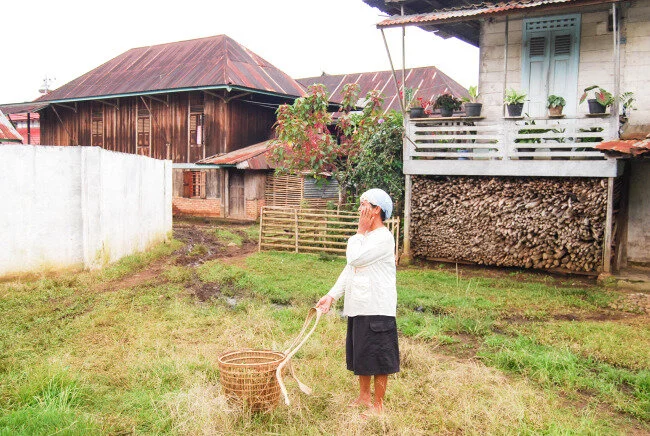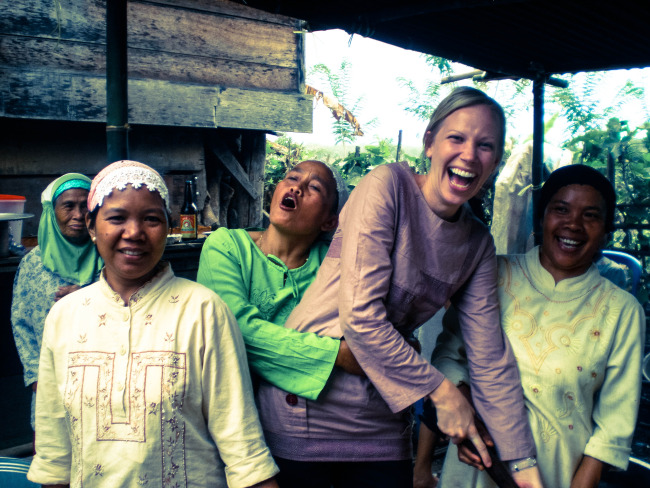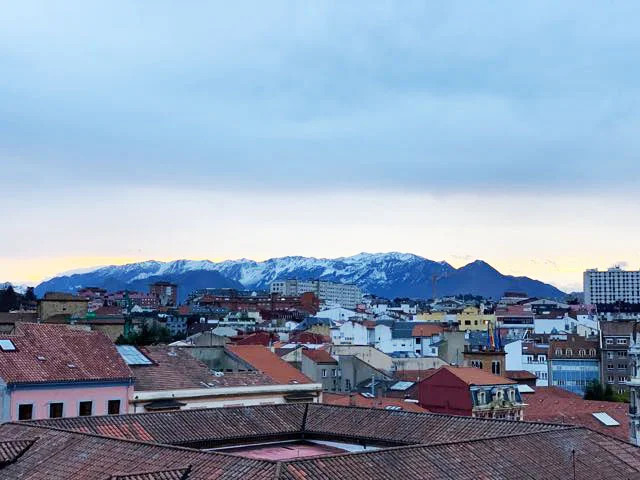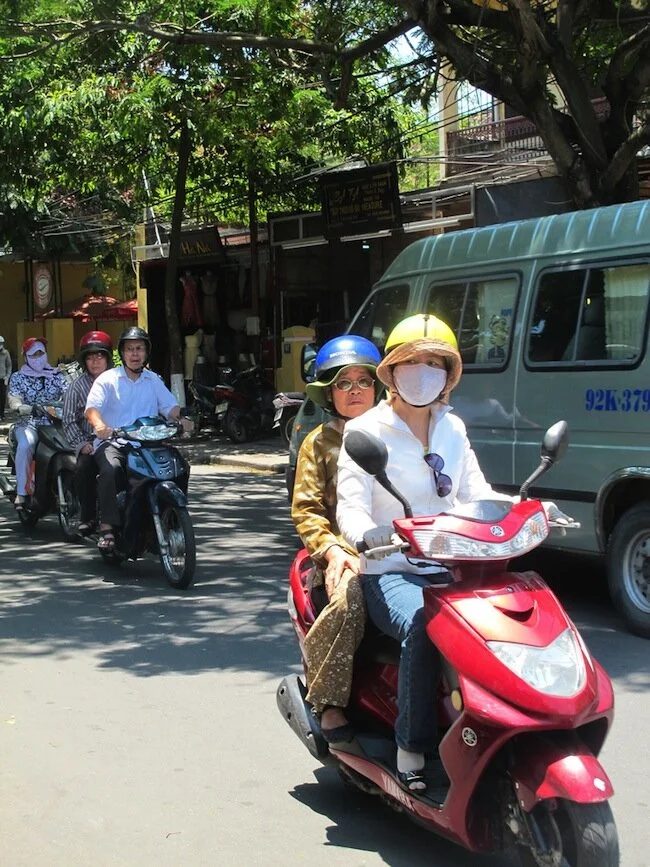Mama Arli’s Due Date
“Na! Na! Hurry; let’s go to the market! Ayo!” Mama Arli’s raspy voice bellows below my kitchen window.
Mama Arli is my neighbor four houses down from mine, and she is always yelling at me. She’s pregnant with her third child, though hardly showing. Arli is the name of her firstborn son, and his name replaced her own once he was born. All mothers are called by their firstborn’s name without exception.
Her house is sturdy, also on stilts, and she is fortunate to have a deep well located just a few feet from her kitchen ladder. It is November in Indonesia and this means its coffee-picking season for those in our Sumatran village. Mama Arli and her husband aren’t home much; instead they are occupied with the daily task of harvesting beans, and then drying the beans on tarps beside their home.
Her eyes are close together, always furrowed but betrayed by her ever-constant grin. Her hair, when I first met her, was a strange bowl cut. Now her hair is long and always pulled back, framed by blunt bangs she likely cuts herself. She wears baggy clothes and occasionally borrows her eldest son’s shoes when she doesn’t feel like looking for her own. Maybe her son had worn hers by accident; she casually explained the one time she caught me looking at her toes spilling out of her young son’s plastic sandals.
“Na! Ayo!” She is still waiting for me. The more she calls, the louder her voice rises.
She doesn’t simply speak words; she spits them out loudly and playfully. If I didn’t know better, I’d think she was mocking me, but instead I have learned this is the way women here talk. Most are loud, boisterous, and rarely whisper unless they absolutely must, in the company of men or when their gossip is extra juicy.
I grab my wallet and my woven basket and rush down the staircase to the patch of grass where she is standing. We link arms and begin the walk to the market a few villages away.
“Can we stop in the next village, Na? I need to see the midwives,” Mama Arli asks, though her tone of voice indicates it’s going to happen whether or not I agree.
This is the first I’ve heard of someone visiting the underutilized midwife clinic in the area and so I am intrigued. Women in this region give birth on the floor of their homes, most often with the help of a female family member.
I have heard harrowing retellings of labor and birth, including another neighbor’s three day labor in which she almost died. Accompanying every story of a healthy baby born is a story of a complicated, sometimes fatal birth.
I wonder about these midwives as we walk the dirt trail from the main road, blithely maneuvering past goats and chickens and countless tarps of coffee beans drying out in the sun. Were the midwives the future of healthcare for these women? A new resource they could turn to in pregnancy, birth, and post-natal care?
We arrive at the midwife clinic, and stand before an unassuming concrete one-story building. We walk around the corner and enter through the open wooden door. Inside is a table in the center and four women gathered around, presumably the midwives. They are chatting.
The midwife clinic is mostly unadorned, save for a few medical supplies listlessly displayed on a shelf. Clipboards are plentiful, however, as are folders of papers in stacks on the table.
“Hoi!” Mama Arli announces us, though it is already clear we have entered the room. The midwives have surely seen us, the spectacle that we are: petite Mama Arli arm in arm with me, her tall, blonde companion, towering over her like a shading palm tree.
They walk over to me first to shake my hand. I tell them my name, Anna, and they nod and admit they knew that already. After they take care of touching my skin and inspecting the shape of my nose, they step toward Mama Arli, who has already made herself comfortable in a chair.
She asks a question that is too quick for me to understand. I watch as a midwife walks to the shelf and retrieves a stethoscope. Mama Arli straightens as the midwife places the stethoscope on her abdomen, searching for the baby’s heartbeat. She glances up and smiles as she hears it, then offers for Mama Arli to hear it, too. Mama Arli waves it off, indifferent, but then changes her mind a moment later. Hearing the heartbeat clearly pleases her, but she has other important things to tend to.
“When is the baby due?” she asks.
The midwife with the stethoscope pauses. “When was your last menstruation?”
Mama Arli scratches her head, “I don’t know."
The midwives circle around Mama Arli in deep discussion. One decides that the due date must be May and declares it impetuously. Another more confidently concludes it is, in fact, April. The midwife with the stethoscope around her neck grabs a clipboard and proceeds to write April on Mama Arli’s new chart.
I feel a lump in my throat. I need to speak up.
“Wait,” I interject, “when I arrived here in July, you were already pregnant. Surely you will give birth before April.”
“Oh, is that right?” asks Mama Arli.
The midwives do the math again, scratch out April on the form and replace it with March. Mama Arli is informed she is at least five months pregnant, and the baby could be born sometime between February and March.
Mama Arli seems satisfied. She stands up from the chair and grabs her woven basket, readying herself to leave. The midwives place in her basket a sleeve of prenatal vitamins, free of charge, and instruct her to come back again next week to get some more.
She thanks them, in her loud yelling way, links her arm in mine, and we are out the door.
Anna McDonnell and friends in Sumatra.
Anna McDonnell has lived in a small village in Sumatra on and off since 2008. She writes about the trials, triumphs, and discoveries that come with being a stranger to a new land at www.annalikesrice.com.





